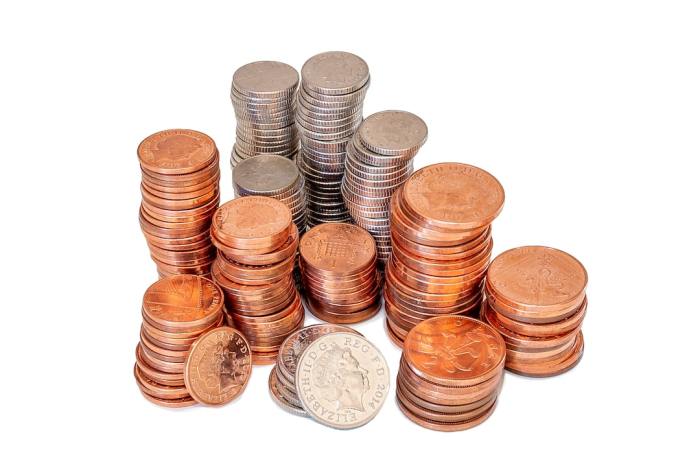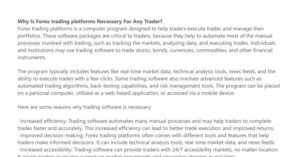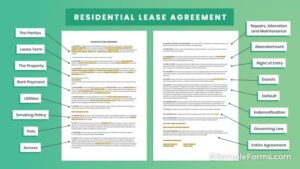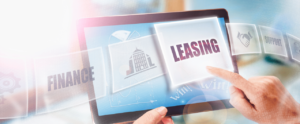
Online forex trading is like a thrilling rollercoaster ride where currency pairs are your trusty seatbelt—and sometimes, they can leave you feeling a bit queasy! Whether you’re just stepping into this wild world or you’re a seasoned trader looking to fine-tune your strategy, fear not! This guide will take you through the essentials of setting up your trading account, understanding the dynamics of leverage, and mastering the financial strategies that can turn your forex dreams into a reality.
From deciphering the basics to navigating the complexities of risk management, this journey is designed to equip you with the knowledge you need to cruise through currency exchanges like a pro. Buckle up as we embark on this financial adventure where every click could either be a jackpot or a ‘better luck next time’!
Online Forex Trading Essentials
Welcome to the wild world of online forex trading, where you can swap currencies faster than you can say “foreign exchange”! This isn’t just about foreign money; it’s about making it rain (or at least trying to) with the click of a mouse. Whether you’re a curious newbie or someone who accidentally wandered into the wrong YouTube channel, this guide will set you on the right path, preferably one paved with gold coins.Online forex trading is the act of buying and selling currency pairs in the hopes of earning a profit from fluctuations in their values.
It’s like playing a game of musical chairs, but instead of chairs, you have currencies like the euro, yen, and dollar. The aim is to buy when the price is low and sell when it’s high. But before you start daydreaming of yacht parties funded by forex profits, let’s lay down some essential steps to get you trading like a pro.
Setting Up a Forex Trading Account
Getting started in forex trading requires you to set up a trading account, which is essentially your passport to the currency world. Here’s a step-by-step guide to help you through the process without accidentally sending your life savings to a Nigerian prince.
1. Choose a Reliable Broker
First things first, pick a trustworthy forex broker. Check for regulations, features, and reviews. Think of this broker as your financial GPS – you wouldn’t want to end up in a sketchy neighborhood!
2. Complete the Application
Fill out the broker’s application form. This will require personal information, including your name, address, and social security number. Just like signing up for a library card, but with slightly higher stakes.
3. Verify Your Identity
Brokers will need to verify your identity. This usually involves uploading a government-issued ID and proof of address. It’s a bit like showing your ID at a bar, except the only drink you’ll be having is a refreshing glass of financial responsibility.
4. Fund Your Account
Once approved, you’ll need to deposit funds into your account. Most brokers offer multiple methods, from bank transfers to credit cards. Choose wisely; think of it like picking the right toppings for your pizza.
5. Download Trading Software
Most brokers provide access to trading platforms like MetaTrader 4 or 5. Download the software and get familiar with the interface. It’s like setting up a new video game; you need to know the controls to avoid crashing and burning.
6. Start Trading
Now that your account is funded and your software is ready, you can begin trading. Remember, trading is a learning curve. Don’t jump in expecting to hit the jackpot right away; even lottery winners have to buy a ticket first!
The Role of Leverage in Forex Trading
Leverage in the forex market is like the turbo boost in your favorite racing game; it can propel your profits but also increase the risk of crashing spectacularly. In forex trading, leverage allows you to control a large position with a relatively small amount of capital, which means you can potentially amplify your gains. But hold your horses – it can also amplify your losses!Forex brokers typically offer leverage ratios ranging from 1:50 to as high as 1:
1000. What does this mean? With a leverage of 1
100, you can control $100,000 with just $1,000 in your account. It’s like borrowing money from a friend to buy a fancy dinner, but in this case, your friend is a broker with a very high tolerance for risk.However, while leverage can lead to greater profits, it can also lead you down the path of despair if things go south.
Here’s how leverage can impact your trading:
“With great power comes great responsibility.”
High Profit Potential
If you invest $1,000 with 1:100 leverage, you control a position worth $100,000. A mere 1% increase could mean a $1,000 profit. Cha-ching!
High Risk of Loss
Conversely, a 1% decrease can wipe your investment out. It’s like going all in at the casino – exciting, but beware of the house edge!In conclusion, understanding leverage is crucial for any forex trader. It’s a double-edged sword that requires careful consideration and a solid risk management strategy. So buckle up, keep your wits about you, and remember: in the world of forex, it’s not just about how much you can earn, but also about knowing when to cash out and enjoy that pizza.
Financial Strategies for Forex Traders

When jumping into the wild world of forex, having a solid financial strategy is as vital as bringing sunscreen to a beach party—essential, and a little bit of a lifesaver. The forex market is notorious for its volatility, which can lead to both wild profits and heart-wrenching losses. So, let’s dive into effective financial management strategies that can keep your trading game strong, minimize risks, and have you allocating your budget like a seasoned pro.
Effective Financial Management Strategies
A well-crafted financial strategy is the backbone of any successful forex trading endeavor. Here are some essential strategies that every trader should consider implementing:
- Establishing a Trading Plan: A trading plan Artikels your trading goals, risk tolerance, and the strategies you’ll use to execute your trades. Think of it as your treasure map, guiding you toward success while keeping you away from dangerous pitfalls.
- Setting Realistic Expectations: No one becomes a forex millionaire overnight—unless you have a secret money tree. Approach trading with realistic goals and embrace the journey. Remember, slow and steady wins the race (or at least keeps you in the game longer).
- Regularly Reviewing Performance: Regularly analyzing your trades and overall performance can help you identify what works and what doesn’t. Consider it your personal trading reflection time—who knew trading could be so introspective?
- Utilizing Automated Trading Systems: Using algorithms can take the emotional rollercoaster out of trading. Automated systems follow your set parameters, allowing you to enjoy your coffee instead of staring at charts all day. Just make sure to keep an eye on them; even robots need supervision!
Importance of Risk Management Techniques
The key to surviving in the forex jungle is not just about making profits but protecting your hard-earned capital. Risk management techniques are your protective gear, making sure you don’t end up with a nasty bruise—or worse, a financial catastrophe. Here’s what you need to know:
“In trading, it’s not about how much you make, but how much you keep.”
- Using Stop-Loss Orders: Setting stop-loss orders is like wearing a safety helmet while riding a bike. It helps you limit your losses and exit trades before they get out of hand. Always remember the mantra: better safe than sorry!
- Position Sizing: Determining the size of your trades is crucial. Over-leveraging can lead to significant losses, whereas clever position sizing helps you navigate the rough waters of forex trading without capsizing.
- Diversifying Your Trades: Just like you wouldn’t put all your eggs in one basket, don’t put all your trading capital on a single currency pair. Spread out your risks across different trades to cushion the blow if one goes south.
- Minding Your Leverage: While leverage can amplify your potential gains, it can also magnify your losses. Be cautious and ensure that you fully understand the risks associated with leveraged trading before diving in.
Budget Allocation for Multiple Currency Trades
Budget allocation is akin to being a chef preparing a five-course meal; you need to know how much of each ingredient to use. Here’s how to allocate your budget for multiple currency trades effectively:
- Establish a Total Trading Budget: Determine how much money you are willing to risk overall. This budget should be an amount you can afford to lose, like that extra cash you have hidden away for pizza nights.
- Segmenting Your Budget: Instead of dumping your entire budget into a single trade, divide your budget into smaller portions for multiple trades. This approach diversifies your exposure and minimizes risk across different currency pairs.
- Implementing a Risk-to-Reward Ratio: Aim for trades with a favorable risk-to-reward ratio. For example, if you risk $1 to potentially gain $3, this setup increases your chances of long-term profitability.
- Regularly Reassessing Your Allocations: Just as you wouldn’t stick to an outdated recipe, be prepared to adjust your budget allocations based on market conditions and your performance. Flexibility is key in the fast-paced forex market!
Related Financial Topics and Their Impact on Forex Trading
Navigating the vast ocean of forex trading can feel like trying to steer a ship through a storm without a compass. However, understanding related financial topics can provide the stability you need to weather any financial tempest. From credit counseling to home equity loans, these concepts can act as your life raft, guiding you toward a healthier trading experience.
Influence of Credit Counseling on Financial Health
Credit counseling plays a crucial role in enhancing a trader’s financial well-being. By obtaining professional guidance, traders can learn to manage their debts effectively, leading to improved credit scores and better borrowing conditions. This financial detox helps in establishing a solid foundation for investing in forex. The benefits of credit counseling include:
- Enhanced understanding of financial management techniques.
- Strategies to improve credit scores over time.
- Increased confidence in making informed trading decisions.
With these advantages, traders can breathe easier knowing that their financial health is on the upswing, allowing them to focus on the charts instead of their credit card balances.
Role of Debt Management in Investment Portfolios
Debt management acts as a financial referee, ensuring that all your investments play nicely together. Maintaining a healthy investment portfolio requires a delicate balance between assets and liabilities. When traders manage their debts effectively, they free up more resources to invest in forex opportunities.Effective debt management strategies include:
- Prioritizing high-interest debts to reduce overall financial strain.
- Establishing a budget that ensures all monthly obligations are met without stifling investment potential.
- Utilizing debt consolidation options to simplify payments and lower interest rates.
By managing debts wisely, traders can cultivate an investment portfolio that flourishes rather than flounders, ultimately enhancing their forex trading prowess.
Home Equity Loans for Funding Forex Trading Activities
Home equity loans can serve as a valuable resource for traders looking to fund their forex activities. This type of financing allows homeowners to tap into the value of their property to raise capital for trading. It’s like finding a treasure chest in your backyard, filled with potential.Key points to consider when using home equity loans include:
- Understanding the risks associated with leveraging your home as collateral.
- Assessing the loan terms for favorable interest rates and repayment parameters.
- Ensuring that the potential returns from forex trading outweigh the costs of borrowing.
By thoughtfully utilizing home equity loans, traders can unlock new avenues for investment, all while keeping their finances securely anchored.
Last Point

In conclusion, online forex trading is not just about numbers and charts; it’s a captivating saga of strategy, risk, and the occasional dose of financial drama. As you dive deeper into this universe, remember that successful trading is all about a sound strategy and smart financial planning. So, whether you end up as a forex guru or a cautious spectator, may your trading journey be filled with excitement, learning, and a sprinkle of humor!
Answers to Common Questions
What is online forex trading?
It’s the act of buying and selling currency pairs over the internet, hoping to profit from the changes in exchange rates.
Do I need a lot of money to start trading forex?
No, you can start with as little as a few dollars, but having a solid strategy is crucial for success!
What is leverage in forex trading?
Leverage allows you to control a larger position with a smaller amount of capital, but it also increases your risk.
How do I manage risk in forex trading?
By setting stop-loss orders, diversifying your trades, and only risking a small percentage of your capital on each trade.
Can I trade forex from my phone?
Absolutely! Most brokers offer mobile trading apps, so you can trade on-the-go like a financial ninja!







